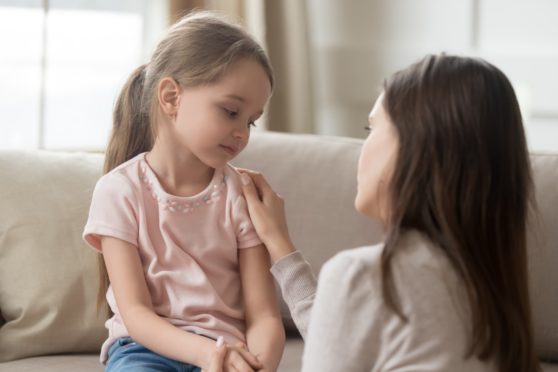
The lockdown is unlikely to lead to long-term problems in children who should cope with the situation, a psychology expert has said.
With schools and nurseries closed amid the coronavirus pandemic young people are in the unprecedented situation of spending several weeks separated from their peer group.
Dr Yvonne Skipper, a senior lecturer in psychology at the University of Glasgow, said while there have been studies of how adults cope in isolation, such as in space or in polar exploration, there has been little research into how children would cope in such circumstances.
She said children are “typically resilient” and are likely to come out of the experience with no ill-effects.
Dr Skipper told the PA news agency: “It should not really be problematic if it only goes on for a couple of months, it should not lead to long-term problems. Parents should not be too worried.
“Kids are used to having some time to themselves so hopefully if it is only a couple of months they will pick up their friendships where they were and it should be OK.”
Scotland’s First Minister Nicola Sturgeon said previously schools may not go back before the summer holidays, which could mean children will not return to the classroom until August.
Dr Skipper said it is not known what the impact of a longer lockdown would be on children.
She said: “The longer it goes on it’s more difficult to judge. I think in the short term it’s OK so long as they are getting some social interaction somewhere whether from parents or with friends online.
“In the shorter term it’s not likely to be too problematic.”
While video calls can be a good way for friends to keep in touch, they may be more tricky for younger children who prefer to play than chat.
Dr Skipper suggested getting young children to do something with their hands such as colouring or playing with Lego while on a video call with a friend so they can be doing something together.
She said this can take the pressure off a face-to-face call when they are not used to interacting in that way and can help keep up their social skills.
The expert said while older children are more used to interacting with their friends online they may be more affected by being away from their peer group as it becomes more important in their sense of identity at that age.
She said creating some kind of structure and routine to the day can help children cope, as can encouraging them to discuss how they are feeling, while knowing someone cares for them is also reassuring for children.
Family circumstances will also have an impact on how children cope as some parents may be facing health and financial worries.
Once the schools do go back it is hoped children will adapt quite well once they get used to the routine again.
Dr Skipper, who is based in the university’s School of Education, said: “It will be a challenge to go back to that routine again as they will be used to more flexibility.
“There may be issues to iron out and it’s important to keep talking to children to help with their expectations and to try to smooth the way as transitions are always challenging.”

Enjoy the convenience of having The Sunday Post delivered as a digital ePaper straight to your smartphone, tablet or computer.
Subscribe for only £5.49 a month and enjoy all the benefits of the printed paper as a digital replica.
Subscribe